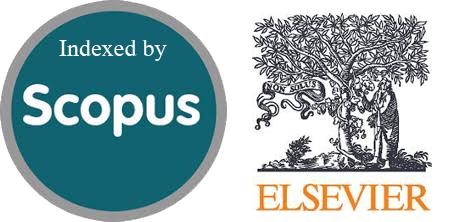Effect of Cuscuta reflexa Extract in Mitigating Testosterone-Induced Benign Prostatic Hyperplasia in Rats: Targeting Inflammation and Oxidative Stress
DOI:
https://doi.org/10.54133/ajms.v8i2.1789Keywords:
Benign prostatic hyperplasia, Cuscuta reflexa, Finasteride, TestosteroneAbstract
Background: Benign prostatic hypertrophy (BPH) is a significant health issue in the aging male population. BPH prevalence is on the rise, due to an increase in modifiable metabolic risk factors. The development of BPH has been linked to inflammation, cell proliferation, and oxidative stress. Objective: This study aimed to investigate the therapeutic potential of Cuscuta reflexa (CR) on testosterone-induced BPH in male Wistar rats. Methods: For four weeks, the rats were given an injection of testosterone propionate (3 mg/kg/day) to cause BPH. During the study, they were also given either CR ethanolic extract (400 mg/kg/day) or finasteride (5 mg/kg/day) along with the testosterone injection. Results: There was a significant rise in the prostate index, a rise in the prostate-specific antigen (PSA), and changes in the tissue that are typical of BPH after testosterone administration. Moreover, testosterone prompted an increase in inflammatory markers (interleukin-6 (IL-6), tumor necrosis factor-alpha (TNF-α), and transforming growth factor-beta (TGF-β) and an increase in nuclear factor-κB (NF-κB) and oxidative stress indicators (increase in malondialdehyde (MDA) and decrease in glutathione (GSH)). However, intervention with CR extract effectively mitigated these changes, possibly via anti-inflammatory and antioxidative properties. Conclusions: These findings highlight the potential of CR extract as adjunctive therapies for BPH, offering an approach for targeting inflammation and oxidative stress. Additionally, long-term studies are necessary to assess the safety and efficacy of Cr extract in managing BPH.
Downloads
References
El-Sherbiny M, El-Shafey M, El-Agawy MSE-d, Mohamed AS, Eisa NH, et al. Diacerein ameliorates testosterone-induced benign prostatic hyperplasia in rats: Effect on oxidative stress, inflammation and apoptosis. Int Immunopharmacol. 2021;100:108082. doi: 10.1016/j.intimp.2021.108082. DOI: https://doi.org/10.1016/j.intimp.2021.108082
Ahmed R, Hamdy O, Awad RM. Diagnostic efficacy of systemic immune-inflammation biomarkers in benign prostatic hyperplasia using receiver operating characteristic and artificial neural network. Sci Rep. 2023;13(1):14801. doi: 10.1038/s41598-023-41781-3. DOI: https://doi.org/10.1038/s41598-023-41781-3
Kim EH, Larson JA, Andriole GL. Management of benign prostatic hyperplasia. Ann Rev Med. 2016;67(1):137-151. doi: 10.1146/annurev-med-063014-123902. DOI: https://doi.org/10.1146/annurev-med-063014-123902
Devlin CM, Simms MS, Maitland NJ. Benign prostatic hyperplasia–what do we know? BJU Int. 2021;127(4):389-399. doi: 10.1111/bju.15229. DOI: https://doi.org/10.1111/bju.15229
Chughtai B, Forde JC, Thomas DD, Laor L, Hossack T, Woo HH, et al. Benign prostatic hyperplasia. Nat Rev Dis Primers. 2016;2:16031. doi: 10.1038/nrdp.2016.31. DOI: https://doi.org/10.1038/nrdp.2016.31
Madersbacher S, Sampson N, Culig Z. Pathophysiology of benign prostatic hyperplasia and benign prostatic enlargement: A mini-review. Gerontology. 2019;65(5):458-464. doi: 10.1159/000496289. DOI: https://doi.org/10.1159/000496289
Afify H, Abo-Youssef AM, Abdel-Rahman HM, Allam S, Azouz AA. The modulatory effects of cinnamaldehyde on uric acid level and IL-6/JAK1/STAT3 signaling as a promising therapeutic strategy against benign prostatic hyperplasia. Toxicol Appl Pharmacol. 2020;402:115122. doi: 10.1016/j.taap.2020.115122. DOI: https://doi.org/10.1016/j.taap.2020.115122
Al-Mukhtar EJ, Al-Zubaidy AA, Al-Khuzaee LM. Finasteride (plus oral contraceptive pill) vs metformin in treatment of polycystic ovary syndrome-related infertility: A prospective randomized trial. Iraqi J Med Sci. 2013;11(1):50-58.
Csikós E, Horváth A, Ács K, Papp N, Balázs VL, Dolenc MS, et al. Treatment of benign prostatic hyperplasia by natural drugs. Molecules. 2021;26(23):7141. doi: 10.3390/molecules26237141. DOI: https://doi.org/10.3390/molecules26237141
Sasidharan S, Srinivasakumar KP, Poddar S, Bhaumik A, Das SK. Benign prostatic hyperplasia (BPH): A comprehensive analysis of the Malaise and summarizing possible management options through phytotherapeutic agents. J Kesehatan Masyarakat Nat. 2022;17(2). doi: 10.21109/kesmas.v17i2.5887. DOI: https://doi.org/10.21109/kesmas.v17i2.5887
Muhammad N, Ullah S, Abu-Izneid T, Rauf A, Shehzad O, Atif M, et al. The pharmacological basis of Cuscuta reflexa whole plant as an antiemetic agent in pigeons. Toxicol Rep. 2020;7:1305-1310. doi: 10.1016/j.toxrep.2020.09.009. DOI: https://doi.org/10.1016/j.toxrep.2020.09.009
Mitsunari K, Miyata Y, Matsuo T, Mukae Y, Otsubo A, Harada J, et al. Pharmacological effects and potential clinical usefulness of polyphenols in benign prostatic hyperplasia. Molecules. 2021;26(2):450. doi: 10.3390/molecules26020450. DOI: https://doi.org/10.3390/molecules26020450
Noureen S, Noreen S, Ghumman SA, Batool F, Bukhari SNA. The genus Cuscuta (Convolvolaceac): An updated review on indigenous uses, phytochemistry, and pharmacology. Iranian J Basic Med Sci. 2019;22(11):1225. doi: 10.22038/ijbms.2019.35296.8407.
Pandit S, Chauhan NS, Dixit V. Effect of Cuscuta reflexa Roxb on androgen‐induced alopecia. J Cosmetic Dermatol. 2008;7(3):199-204. doi: 10.1111/j.1473-2165.2008.00389.x. DOI: https://doi.org/10.1111/j.1473-2165.2008.00389.x
Chishti MA, Akram M, Ahmet F. Cuscuta reflexa traditional miracle plant: A review on ethnomedicinal and therapeutic potential. Int Arch Integr Med. 2024;11(1). doi: 10.5281/zenodo.10556608.
Perveen S, Bukhari IH, Kousar S, Rehman J. Antimicrobial, antioxidant and minerals evaluation of Cuscuta europea and Cuscuta reflexa collected from different hosts and exploring their role as functional attribute. Int Res J Pharm Appl Sci. 2013;3(5):43-49.
Gilani A-UH, Aftab K. Pharmacological actions of Cuscuta reflexa. Int J Pharmacogn. 1992;30(4):296-302. doi: 10.3109/13880209209054017. DOI: https://doi.org/10.3109/13880209209054017
Rahmatullah M, Sultan S, Toma TT, Lucky SA, Chowdhury MH, Haque WM, et al. Effect of Cuscuta reflexa stem and Calotropis procera leaf extracts on glucose tolerance in glucose-induced hyperglycemic rats and mice. Afr J Tradit Complement Altern Med. 2009;7(2):109-112. doi: 10.4314/ajtcam.v7i2.50864. DOI: https://doi.org/10.4314/ajtcam.v7i2.50864
Chatterjee D, Sahu RK, Jha AK, Dwivedi J. Evaluation of antitumor activity of Cuscuta reflexa Roxb (Cuscutaceae) against Ehrlich ascites carcinoma in Swiss albino mice. Tropic J Pharm Res. 2011;10(4):447-454. DOI: https://doi.org/10.4314/tjpr.v10i4.10
Sharma N, Kumar V, Gupta N. Phytochemical analysis, antimicrobial and antioxidant activity of methanolic extract of Cuscuta reflexa stem and its fractions. Vegetos. 2021;34:876-881. doi: 10.1007/s42535-021-00249-3. DOI: https://doi.org/10.1007/s42535-021-00249-3
Mahat R, Thapa A, Kunwar RM, (Eds.), Cuscuta reflexa Roxb, In: Convolvulaceae. Ethnobotany of the Himalayas, Springer; 2021:661-667. doi: 10.1007/978-3-030-45597-2_71-2. DOI: https://doi.org/10.1007/978-3-030-57408-6_71
Patel S, Sharma V, Chauhan NS, Dixit VK. A study on the extracts of Cuscuta reflexa Roxb. in treatment of cyclophosphamide induced alopecia. DARU J Pharm Sci. 2014;22:1-7. doi: 10.1186/2008-2231-22-7. DOI: https://doi.org/10.1186/2008-2231-22-7
Eid BG, Abdel-Naim AB. Piceatannol attenuates testosterone-induced benign prostatic hyperplasia in rats by modulation of Nrf2/HO-1/NFκB axis. Front Pharmacol. 2020;11:614897. doi: 10.3389/fphar.2020.614897. DOI: https://doi.org/10.3389/fphar.2020.614897
Bhattacharya S, Roy B. Preliminary investigation on antipyretic activity of Cuscuta reflexa in rats. J Adv Pharm Technol Res. 2010;1(1):83-87. DOI: https://doi.org/10.4103/2231-4040.70529
Abo-Youssef AM, Afify H, Azouz AA, Abdel-Rahman HM, Abdel-Naim AB, Allam S. Febuxostat attenuates testosterone-induced benign prostatic hyperplasia in rats via inhibiting JAK/STAT axis. Life Sci. 2020;260:118414. doi: 10.1016/j.lfs.2020.118414. DOI: https://doi.org/10.1016/j.lfs.2020.118414
Livak KJ, Schmittgen TD. Analysis of relative gene expression data using real-time quantitative PCR and the 2−ΔΔCT method. Methods. 2001;25(4):402-408. doi: 10.1006/meth.2001.1262. DOI: https://doi.org/10.1006/meth.2001.1262
Leisegang K, Jimenez M, Durairajanayagam D, Finelli R, Majzoub A, Henkel R, et al. A systematic review of herbal medicine in the clinical treatment of benign prostatic hyperplasia. Phytomed Plus. 2022;2(1):100153. doi: 10.1016/j.phyplu.2021.100153. DOI: https://doi.org/10.1016/j.phyplu.2021.100153
Keehn A, Taylor J, Lowe FC. Phytotherapy for benign prostatic hyperplasia. Curr Urol Rep. 2016;17:1-6. doi: 10.1007/s11934-016-0609-z. DOI: https://doi.org/10.1007/s11934-016-0609-z
Rho J, Seo CS, Park HS, Jeong HY, Moon OS, Seo YW, ET AL. Asteris Radix et Rhizoma suppresses testosterone-induced benign prostatic hyperplasia in rats by regulating apoptosis and inflammation. J Ethnopharmacol. 2020;255:112779. doi: 10.1016/j.jep.2020.112779. DOI: https://doi.org/10.1016/j.jep.2020.112779
Abdel‐Fattah MM, Abo‐El Fetoh ME, Afify H, Ramadan LA, Mohamed WR. Probenecid ameliorates testosterone‐induced benign prostatic hyperplasia: Implications of PGE‐2 on ADAM‐17/EGFR/ERK1/2 signaling cascade. J Biochem Mol Toxicol. 2023;37(11):e23450. doi: 10.1002/jbt.23450. DOI: https://doi.org/10.1002/jbt.23450
Jang YJ, Jung HY, Myeong JY, Song KH, Kwon J, Kim D, et al. Effects of alginate oligosaccharide on testosterone-induced benign prostatic hyperplasia in orchiectomized rats. Nutrients. 2023;15(3):682. doi: 10.3390/nu15030682. DOI: https://doi.org/10.3390/nu15030682
Jarvis TR, Chughtai B, Kaplan SA. Testosterone and benign prostatic hyperplasia. Asian J Androl. 2015;17(2):212-216. doi: 10.4103/1008-682x.140966. DOI: https://doi.org/10.4103/1008-682X.140966
Jin BR, An HJ. Baicalin alleviates benign prostate hyperplasia through androgen-dependent apoptosis. Aging (Albany NY). 2020;12(3):2142. doi: 10.18632/aging.102731. DOI: https://doi.org/10.18632/aging.102731
Elsherbini DMA, Almohaimeed HM, El-Sherbiny M, Mohammedsaleh ZM, Elsherbiny NM, Gabr SA, et al. Origanum majorana L. Extract attenuated benign prostatic hyperplasia in rat model: Effect on oxidative stress, apoptosis, and proliferation. Antioxidants (Basel). 2022;11(6):1149. doi: 10.3390/antiox11061149. DOI: https://doi.org/10.3390/antiox11061149
Yang X, Yuan L, Xiong C, Yin C, Ruan J. Abacopteris penangiana exerts testosterone-induced benign prostatic hyperplasia protective effect through regulating inflammatory responses, reducing oxidative stress and anti-proliferative. J Ethnopharmacol. 2014;157:105-113. doi: 10.1016/j.jep.2014.09.025. DOI: https://doi.org/10.1016/j.jep.2014.09.025
Holmström F, Shimizu S, Shimizu T, Higashi Y, Martin DT, Honda M, et al. Protective effect of hydroxyfasudil, a Rho kinase inhibitor, on ventral prostatic hyperplasia in the spontaneously hypertensive rat. Prostate. 2015;75(15):1774-1782. doi: 10.1002/pros.23063. DOI: https://doi.org/10.1002/pros.23063
Rastrelli G, Vignozzi L, Corona G, Maggi M. Testosterone and benign prostatic hyperplasia. Sexual Med Rev. 2019;7(2):259-271. doi: 10.1016/j.sxmr.2018.10.006. DOI: https://doi.org/10.1016/j.sxmr.2018.10.006
Abed Mansoor AF, Abu Raghif AR. Attenuated effects of rivastigmine in induced cytokine storm in mice. J Emergency Med Trauma Acute Care. 2022;2022(3):12. doi: 10.5339/jemtac.2022.ismc.12 DOI: https://doi.org/10.5339/jemtac.2022.ismc.12
Hasan AM, Gatea FK. Novel effect of topical Roquinimex and its combination with Clobetasol on an imiquimod-induced model of psoriasis in mice. Naunyn-Schmiedeberg's Pharmacl. 2024:1-14. doi: 10.1007/s00210-024-02947-6. DOI: https://doi.org/10.1007/s00210-024-02947-6
Katiyar NS, Singh AP, Gangwar AK, Rao NV. Evaluation of carrageenan induced anti-inflammatory activity of stem extracts of Cuscuta reflexa (Roxb) in rats. Int J Res Pharm Chem. 2015;5(2):322-326.
Li F, Pascal LE, Wang K, Zhou Y, Balasubramani GK, O'Malley KJ, et al. Transforming growth factor beta 1 impairs benign prostatic luminal epithelial cell monolayer barrier function. Am J Clin Exp Urol. 2020;8(1):9-17. PMID: 32211449.
Ahmed NH, Al-Zubaidy AAK, Qasim BJ. Effect of tadalafil in comparison with clobetasol ointment in induced psoriasis in mice male. Tikrit J Pharm Sci. 2022;16(1):9-18. doi: 10.25130/tjphs.2022.16.1.2.9.18. DOI: https://doi.org/10.25130/tjphs.2022.16.1.2.9.18
Ficarra V, Rossanese M, Zazzara M, Giannarini G, Abbinante M, Bartoletti R, et al. The role of inflammation in lower urinary tract symptoms (LUTS) due to benign prostatic hyperplasia (BPH) and its potential impact on medical therapy. Curr Urol Rep. 2014;15(12):463. doi: 10.1007/s11934-014-0463-9. DOI: https://doi.org/10.1007/s11934-014-0463-9
Park WY, Song G, Park JY, Ahn KS, Kwak HJ, Park J, et al. Ellagic acid improves benign prostate hyperplasia by regulating androgen signaling and STAT3. Cell Death Dis. 2022;13(6):554. doi: 10.1038/s41419-022-04995-3. DOI: https://doi.org/10.1038/s41419-022-04995-3
Ahmed AA, Kadhim HM. Effects of a crude extract of Echinops mosulensis on an induced Parkinson’s disease model in mice. Pharmacia. 2024;71:1-14. doi: 10.3897/pharmacia.71.e131570. DOI: https://doi.org/10.3897/pharmacia.71.e131570
Baeuerle PA, Henkel T. Function and activation of NF-kappa B in the immune system. Ann Rev Immunol. 1994;12:141-179. doi: 10.1146/annurev.iy.12.040194.001041. DOI: https://doi.org/10.1146/annurev.iy.12.040194.001041
Hussein ZA, Abu-Raghif AR, Tahseen NJ, Rashed KA, Shaker NS, Fawzi HA. Vinpocetine alleviated alveolar epithelial cells injury in experimental pulmonary fibrosis by targeting PPAR-γ/NLRP3/NF-κB and TGF-β1/Smad2/3 pathways. Sci Rep. 2024;14(1):11131. doi: 10.1038/s41598-024-61269-y. DOI: https://doi.org/10.1038/s41598-024-61269-y
Savitha T, Narmatha S, Sandhiya S, Kokila J, Poovizhi T. Review on pharmacological and therapeutic potential of Cuscuta species. Medicon Med Sci. 2021;1:18-31.
Suresh V, Sruthi V, Padmaja B, Asha VV. In vitro anti-inflammatory and anti-cancer activities of Cuscuta reflexa Roxb. J Ethnopharmacol. 2011;134(3):872-877. doi: 10.1016/j.jep.2011.01.043. DOI: https://doi.org/10.1016/j.jep.2011.01.043

Downloads
Published
How to Cite
Issue
Section
License
Copyright (c) 2025 Al-Rafidain Journal of Medical Sciences ( ISSN 2789-3219 )

This work is licensed under a Creative Commons Attribution-NonCommercial-ShareAlike 4.0 International License.
Published by Al-Rafidain University College. This is an open access journal issued under the CC BY-NC-SA 4.0 license (https://creativecommons.org/licenses/by-nc-sa/4.0/).











